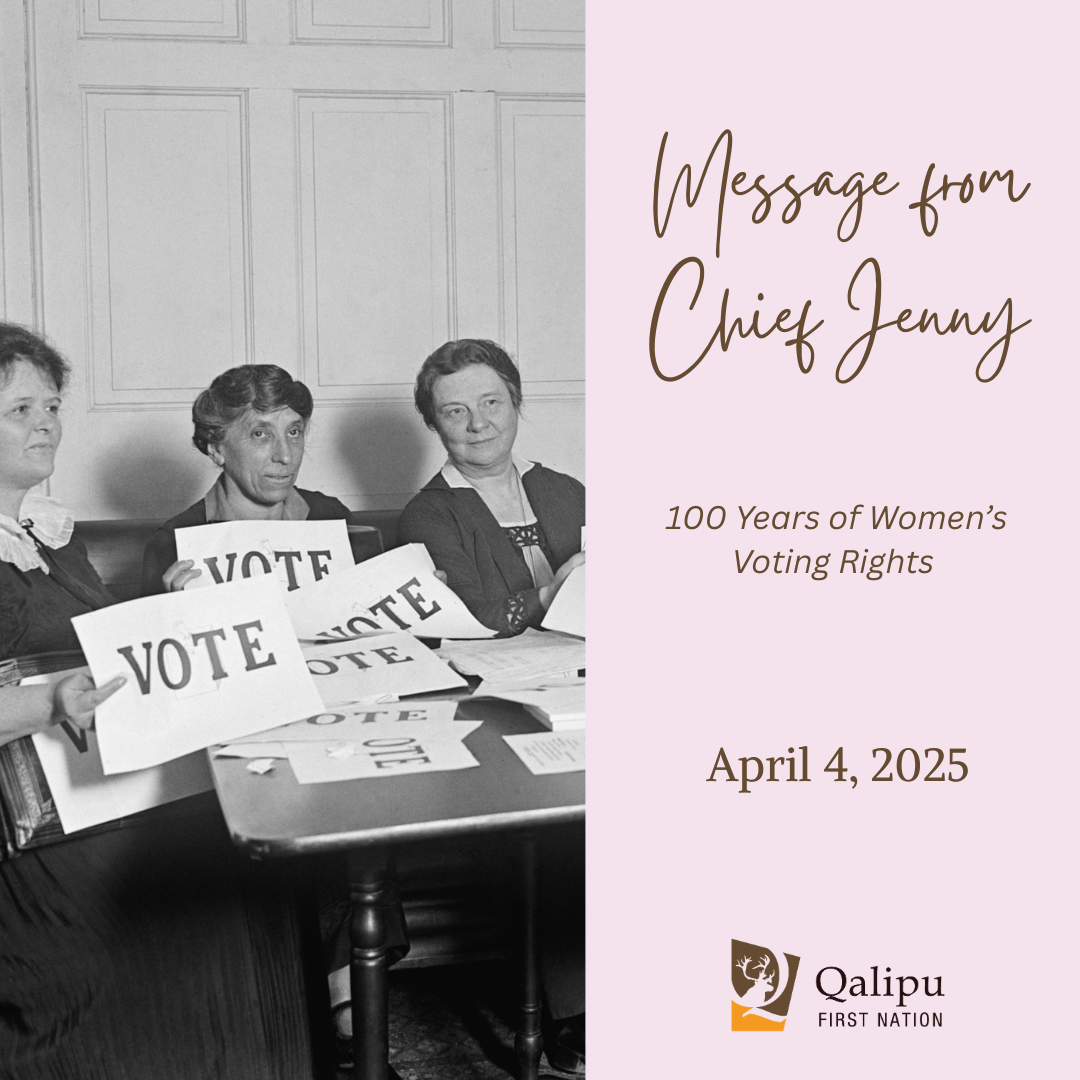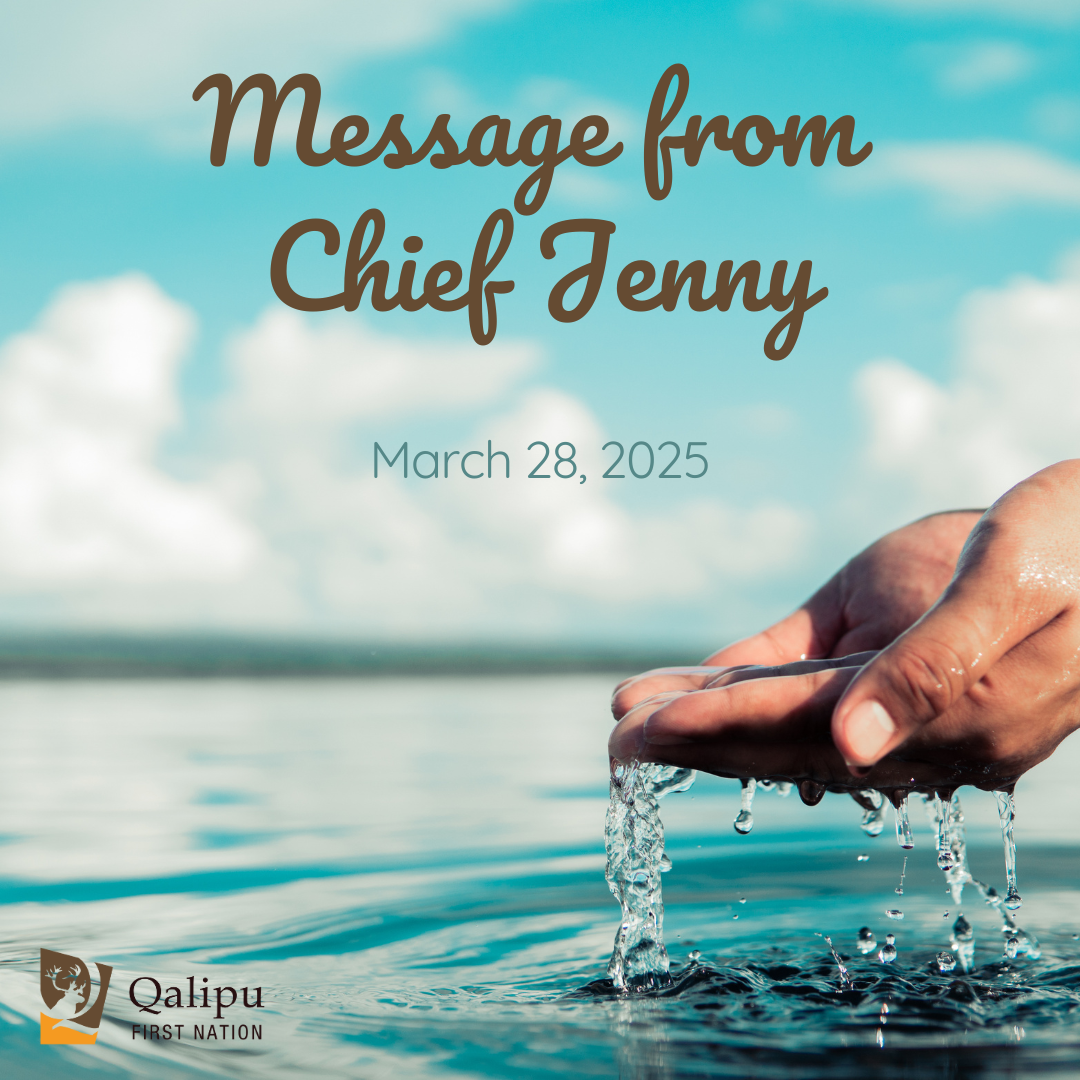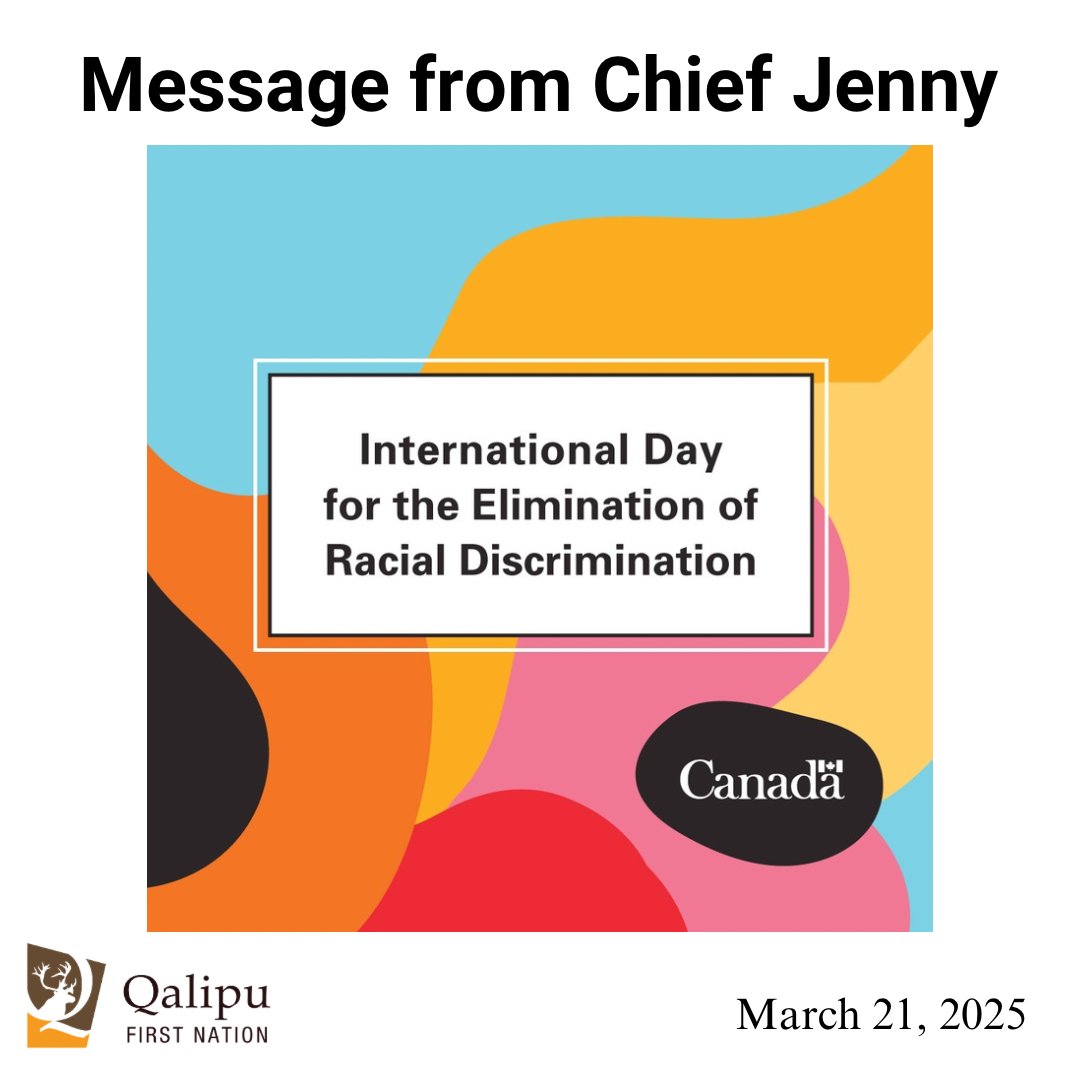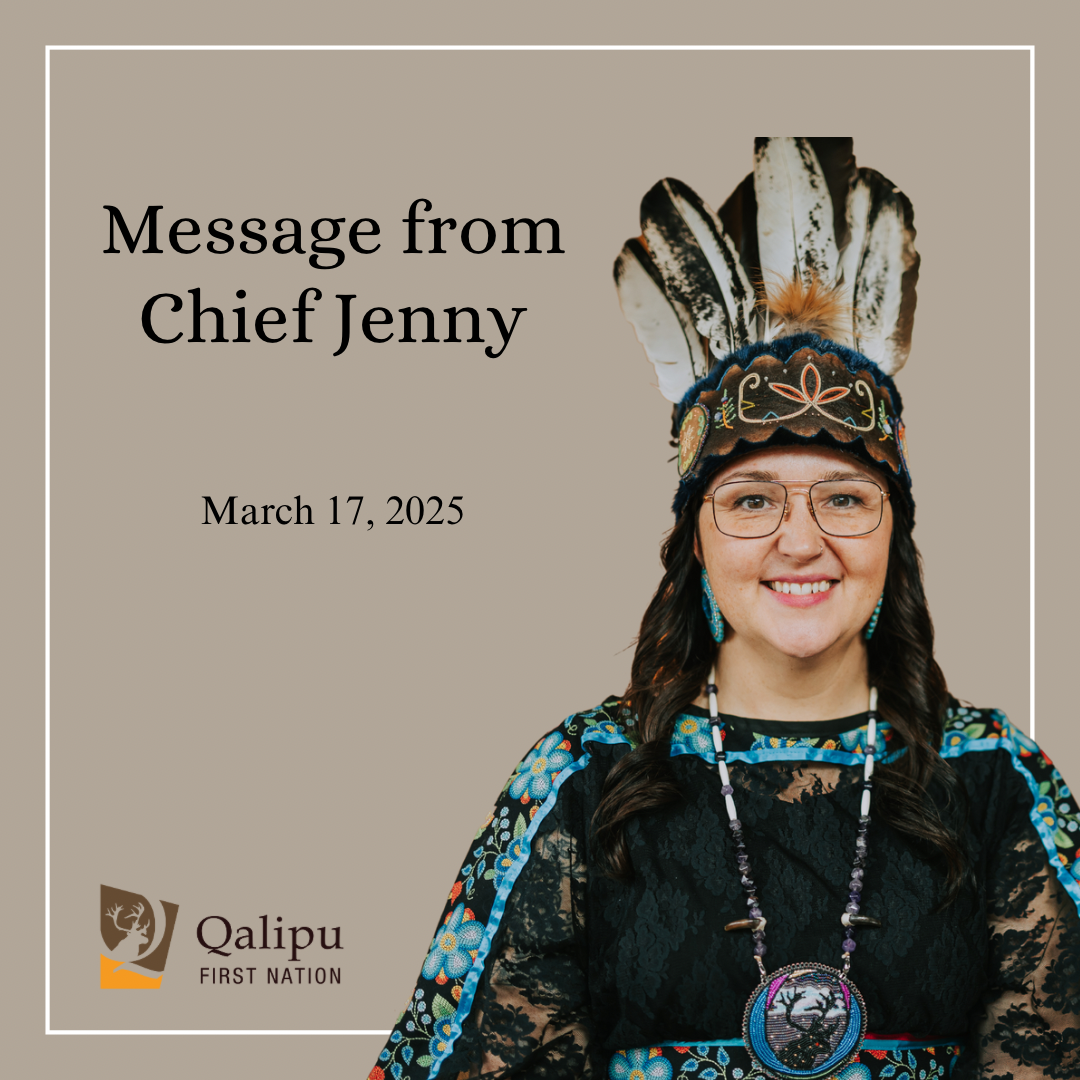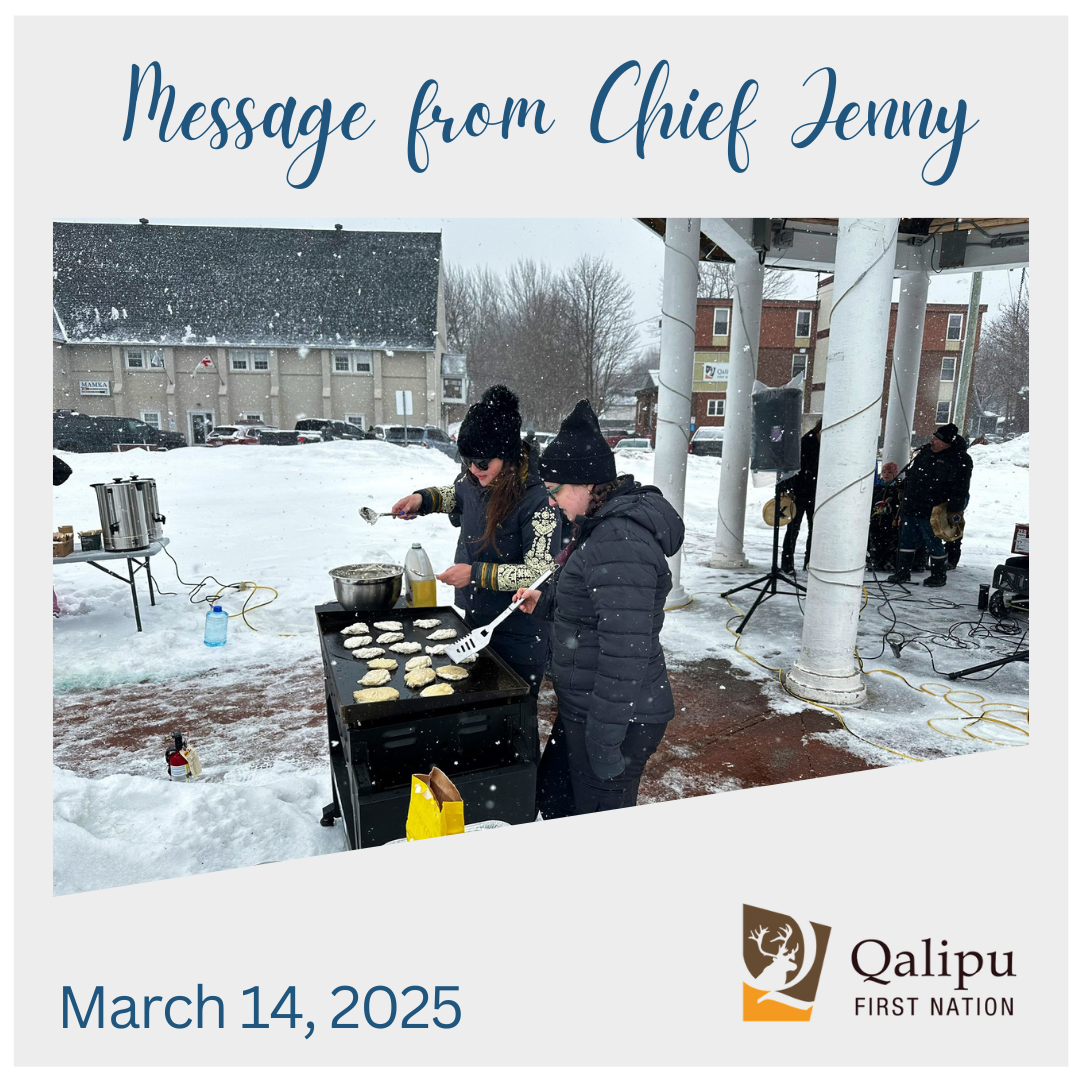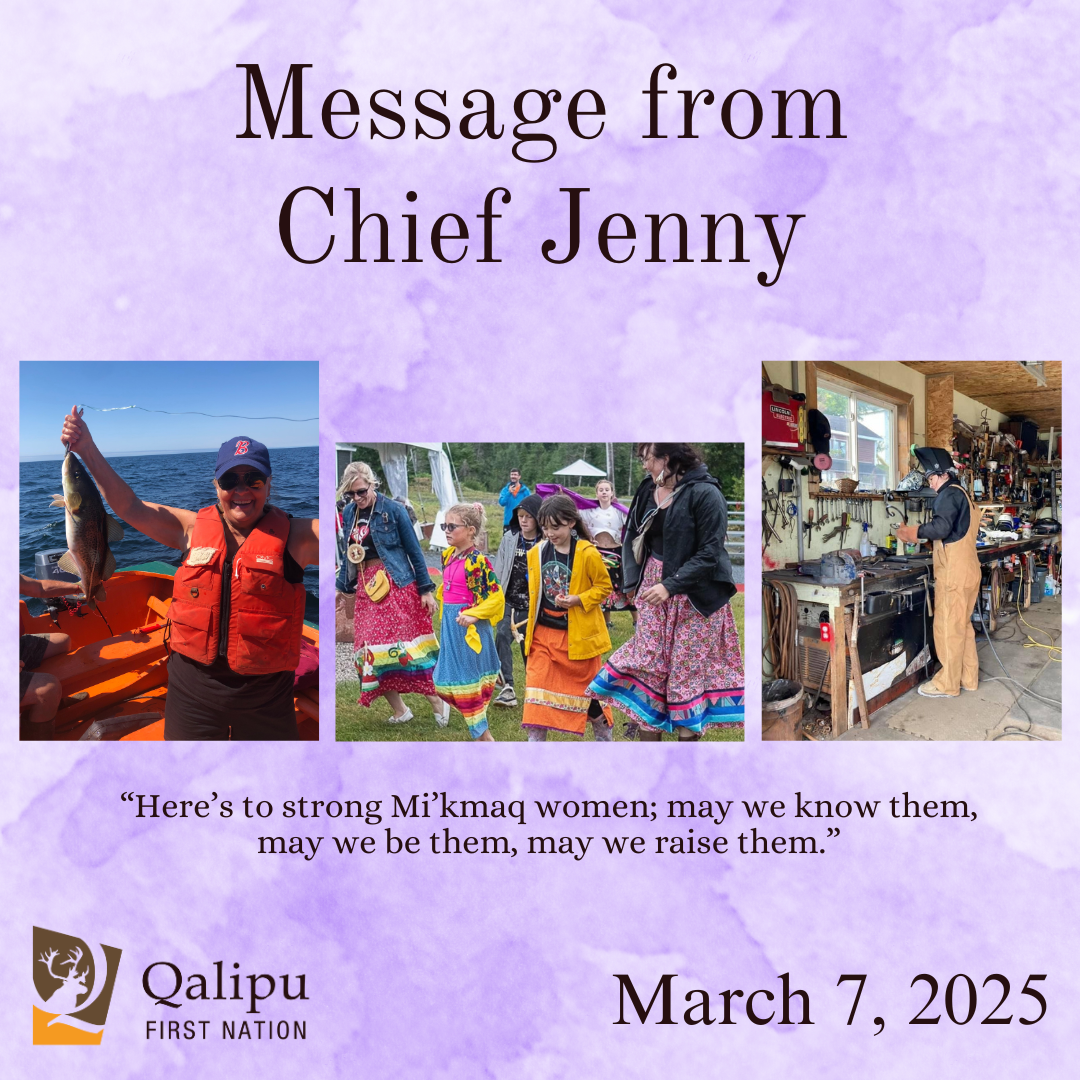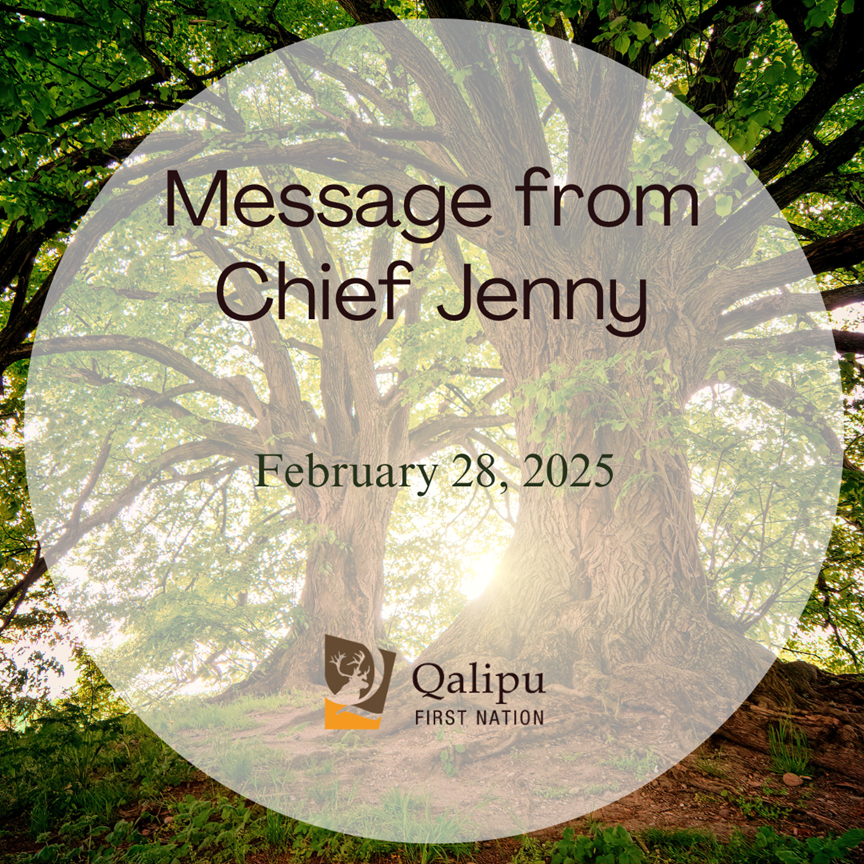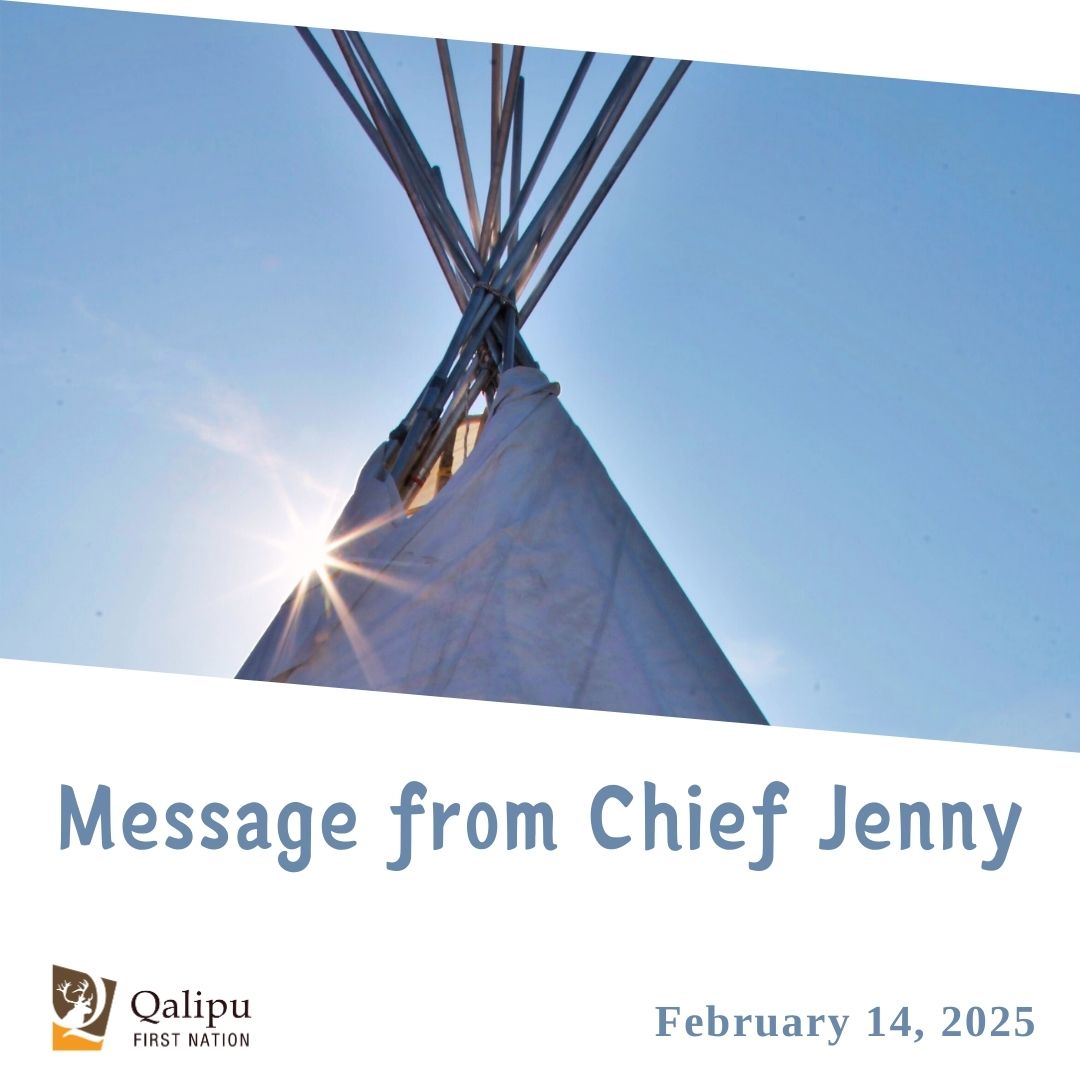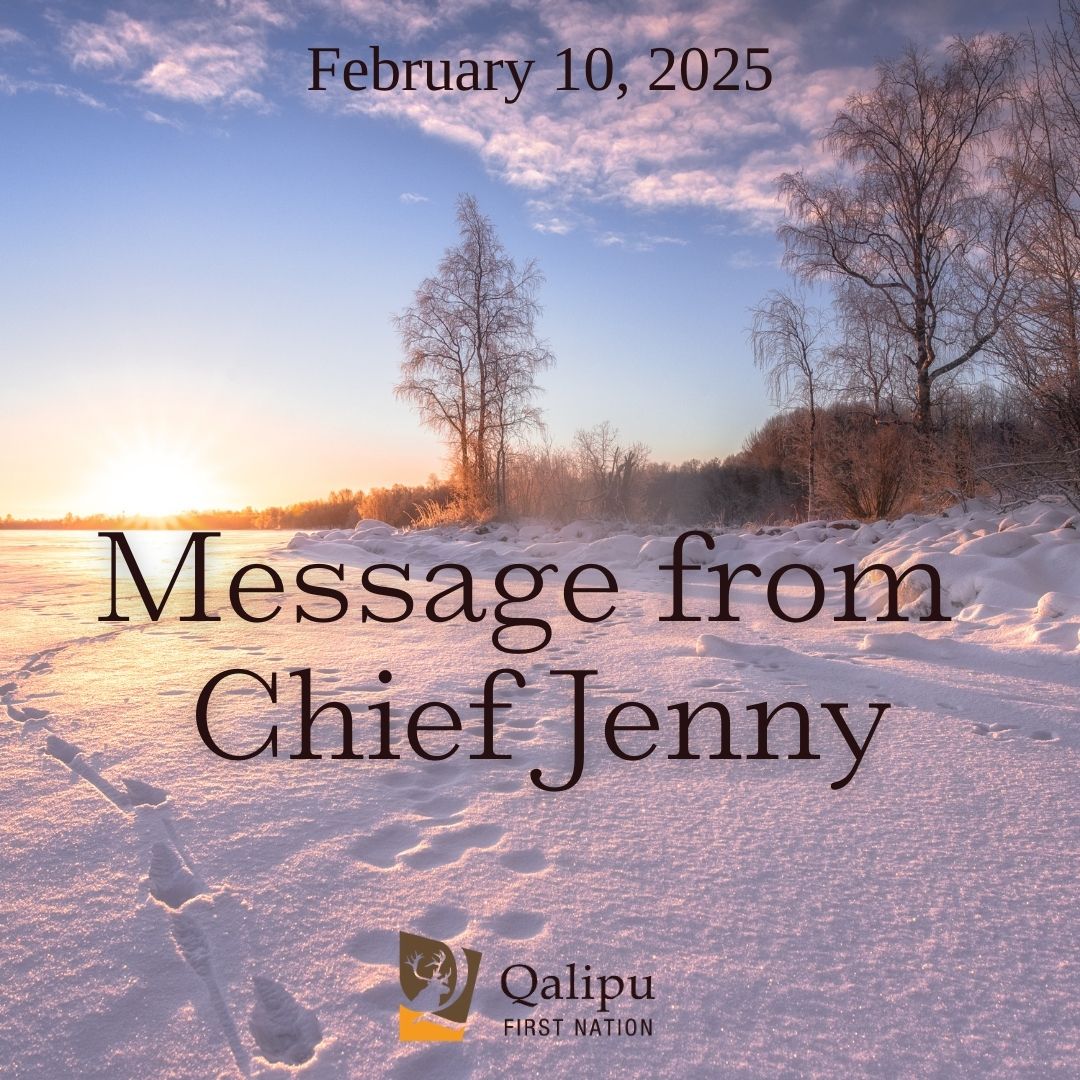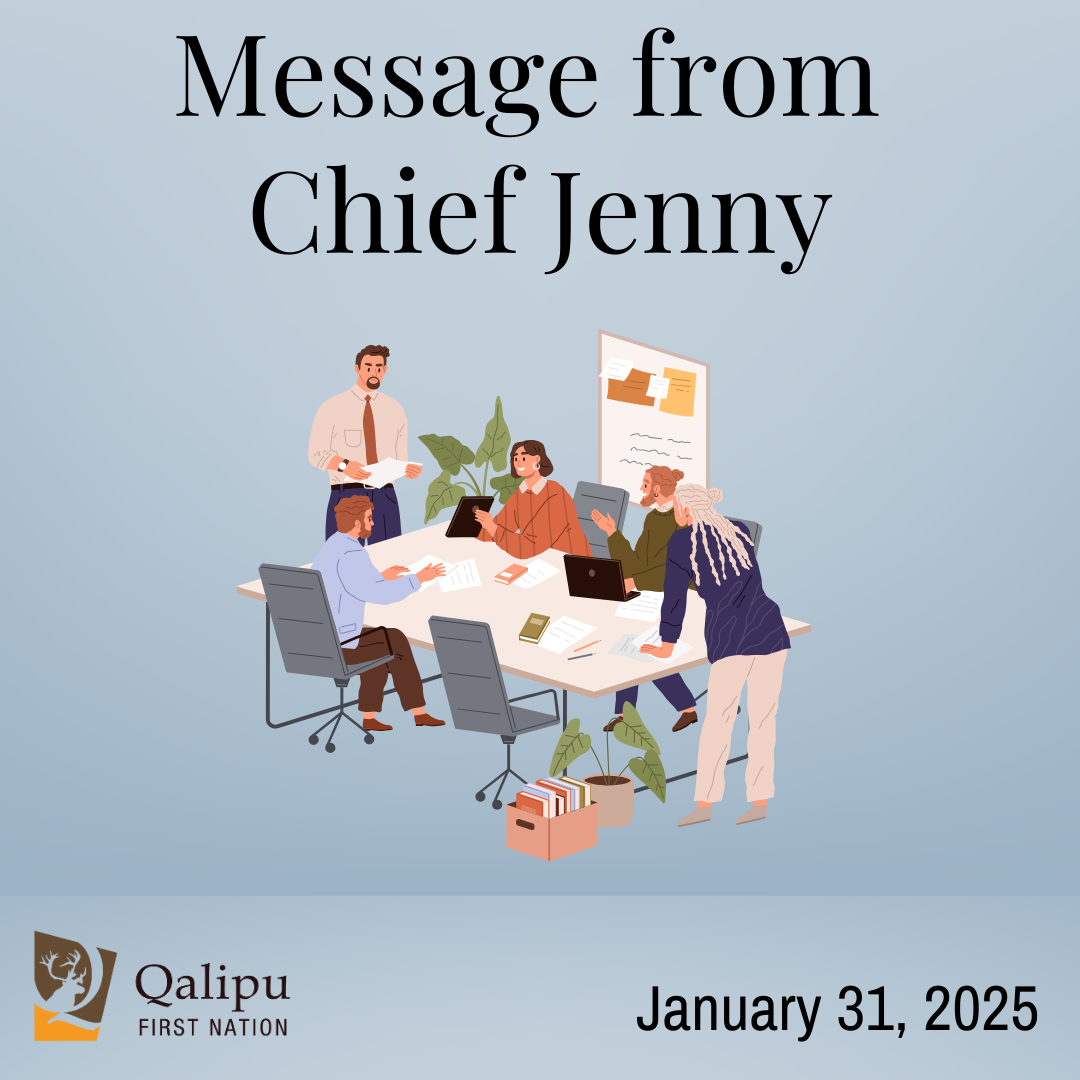On April 3, 1925, after decades of determined lobbying, advocacy, and public campaigning, women in Newfoundland secured the right to vote and hold public office. This victory not only affirmed the status of women as equal members of society but also challenged traditional gender roles, creating space for future generations to take their rightful place in leadership and governance.
To commemorate this day, I had the honor of attending the celebration at the Confederation Building hosted by the Honourable Pam Parsons and her team from the Office of Women and Gender Equality. It was a powerful reminder of the strength and perseverance of the women who fought tirelessly for this right. Their commitment paved the way for women today, including the many Mi’kmaw women who continue to shape our Nation, carrying forward the spirit of leadership and resilience.
Although I appreciated the opportunity to attend the celebration, it was not lost on me that as a female leader of our Nation, being acknowledged in that space with Provincial leaders was not something that our grandmothers would have imagined possible in their lifetimes. It is important to remember that it wasn’t until 1960 that legislation was passed allowing Indigenous people to vote in federal elections without having to forfeit their status.
During my visit, I spoke with candidates for the upcoming election. I was happy to have the opportunity to advocate for our Nation as they determine their priorities going forward. It is crucial that we take the time to educate ourselves about the candidates. Although the relationship between Indigenous and non-Indigenous governments in Canada has improved, there is still room for growth. We must vote for leaders who have a willingness to learn and understand who we are and who can also see the value of the relationship with our Nation.
With elections upon us, these milestones remind us why voting matters. Our right to vote is something others fought for. Every time we cast a ballot; we honor those who fought for this right. Elections are not just about choosing leaders, they are about shaping the policies and decisions that impact our communities, families, and future generations.
I encourage everyone to take part in the upcoming elections. By voting, we ensure that our voices are heard, our concerns are addressed, and a hope for stronger relationships where we are working together to build stronger communities. Participation in elections is one of the most powerful ways we can honor the legacy of those who paved the way for us. It ensures that the work they started continues for generations to come.


